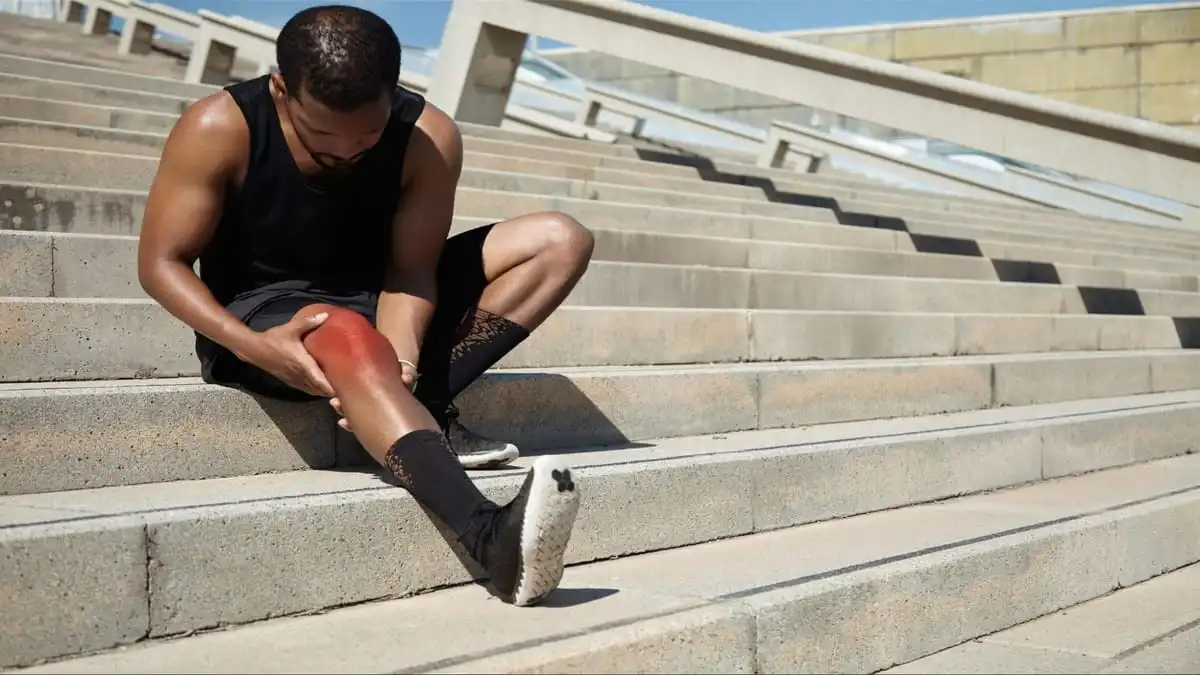In our daily routines, the importance of comfortable footwear, and the question of ‘Can Shoes Cause Knee Pain?‘ cannot be overstated. It serves as a fundamental pillar for both our overall comfort and mobility. By providing essential support, the right pair of shoes can alleviate strain and discomfort on our feet, significantly influencing how we move and feel throughout the day. This influence plays a crucial role in maintaining a healthy lifestyle, and proper posture.
Knee pain, a common ailment that can affect people of all ages, often becomes a cause for concern. Surprisingly, many individuals are unaware of the significant impact that footwear choices have on knee health. This blog explores the complex relationship between our footwear choices and knee discomfort, addressing the question: Can shoes cause knee pain? Let’s explore various aspects of footwear and how it impacts knee pain, You will gain a more comprehensive understanding
Can Flat Shoes Cause Knee Pain?
Flat shoes, despite their comfort and simplicity, can contribute to knee problems in various ways. They lack arch support, increasing stress on the knee joint during activities like walking or running.
Additionally, they often lack proper shock absorption, worsening the strain on the knees. This can elevate the risk of knee tendonitis due to increased strain on knee tendons. When choosing flat shoes, it’s essential to be aware of these potential issues and consider alternatives if you’re experiencing knee pain or discomfort.
Signs of Knee Pain Caused by Flat Shoes
It is critical to detect knee pain caused by flat shoes in order to intervene on time.
Symptoms of knee pain:
- Pain in the front knee
- Pain in the sides of the knee
- Swelling around the knee
- Tenderness around the knee
- Crepitus
- Limited range of motion
How Your Shoes Impact Your Knee Pain?

Your shoes can significantly impact knee pain. Here’s how:
- Arch Support: Inadequate arch support can lead to overpronation or underpronation, increasing stress on the knee joint.
- Cushioning: Insufficient cushioning can result in greater impact on the knees, worsening knee pain.
- Stability and Motion Control: Shoes lacking stability features can contribute to knee discomfort by allowing excessive movement and inadequate support.
- Fit: Ill-fitting shoes can disrupt natural foot movement and alignment, leading to increased strain on the knees.
- Wear and Tear: Worn-out shoes fail to provide proper support, increasing stress on the knees.
Different types of shoes can influence knee pain
Various shoe types can impact knee pain differently.
- For instance, high heels tilt the pelvis forward, increasing the pressure on the knees.
- Athletic shoes with cushioning and stability features are designed to reduce shock and promote proper alignment during physical activities.
- Flat shoes, as discussed earlier, can lack the support needed to protect knee health.
Can Bad Shoes Cause Knee Pain?
Bad Shoes and Their Characteristics:
Bad shoes can be defined as footwear that lacks proper support, cushioning, or alignment, leading to discomfort and potential knee pain
Characteristics of bad shoes:
- Insufficient arch support
- Inadequate cushioning
- Poor alignment
- Incorrect fit
- Worn-out soles
How ill-fitting shoes can lead to knee discomfort?
Ill-fitting shoes can have a negative impact on knee health and contribute to discomfort. Here’s how they can lead to knee pain:
- Altered biomechanics
- Increased pressure on the joints
- Lack of shock absorption
- Compensatory movements
Steps to avoid or mitigate knee pain caused by bad shoes:
Consider the following steps:
- Select appropriate footwear that provides arch support, cushioning, and alignment tailored to your specific activity.
- To maintain optimal shock absorption and minimize stress on your knees, it’s important to replace shoes that show signs of wear and
- Consider orthotic inserts recommended by a healthcare professional to improve foot alignment and reduce knee strain.
- If you’re experiencing ongoing knee pain, it may be beneficial to listen to your body and consider switching to shoes that offer improved support and comfort
How Your Shoes Could Be Making Your Knee Pain Worse?

Common mistakes in shoe selection:
When it comes to selecting shoes, there are common mistakes that can worsen knee pain. Some of these mistakes include:
- Choosing shoes with inadequate arch support
- Opting for shoes with improper cushioning
- Selecting shoes with an incorrect fit
- Ignoring wear and tear
The link between shoe wear, tear, and knee pain:
The condition of your shoes has a direct impact on knee pain. When shoes become worn out, they lose support and cushioning, leading to increased stress on the knees. Indicators of wear include flattened cushioning, worn soles, and loss of shape. It is important to regularly inspect and replace your shoes in order to prevent worsening knee pain.
The connection between shoe arch support and knee health:
Proper arch support is crucial for maintaining healthy knees. When shoes lack adequate arch support, they can lead to overpronation or underpronation, causing the knee joint to be misaligned.
This misalignment puts additional stress on the knees, resulting in pain and discomfort. On the other hand, shoes that provide proper arch support help maintain proper alignment of the knee joint, distribute forces evenly, and reduce the risk of experiencing knee pain
Tips for preventing worsening knee pain:
To prevent worsening knee pain, it is important to make informed shoe choices. Here are some practical tips
Five essential tips:
- Choose shoes with good arch support to maintain proper alignment and reduce knee strain.
- Prioritise cushioning in your shoes, especially for high-impact activities, to absorb shock effectively.
- Ensure a proper shoe fit, avoiding tight or loose shoes that can disrupt alignment and stress your knees.
- Regularly replace worn-out shoes to maintain optimal support and cushioning.
- Consider custom orthotic inserts if you have specific foot conditions or alignment issues, as they can enhance support and alignment for your feet and knees.
Final Thoughts
Choosing the correct shoes is crucial for preventing and relieving knee pain. When assessing footwear, important factors to consider include arch support, cushioning, fit, and wear and tear. Understanding the impact of shoes on knee pain highlights the importance of investing in appropriate footwear to protect your knee health. If knee pain continues, it’s advisable to seek professional guidance.
Prioritizing knee comfort through proactive measures and informed shoe selection can have a significant impact on your overall well-being.
Remember that your choice of shoes plays a substantial role in preventing and managing knee discomfort. Recognizing that can shoes cause knee pain? is a critical question, Investing in appropriate footwear becomes even more important for safeguarding knee health










